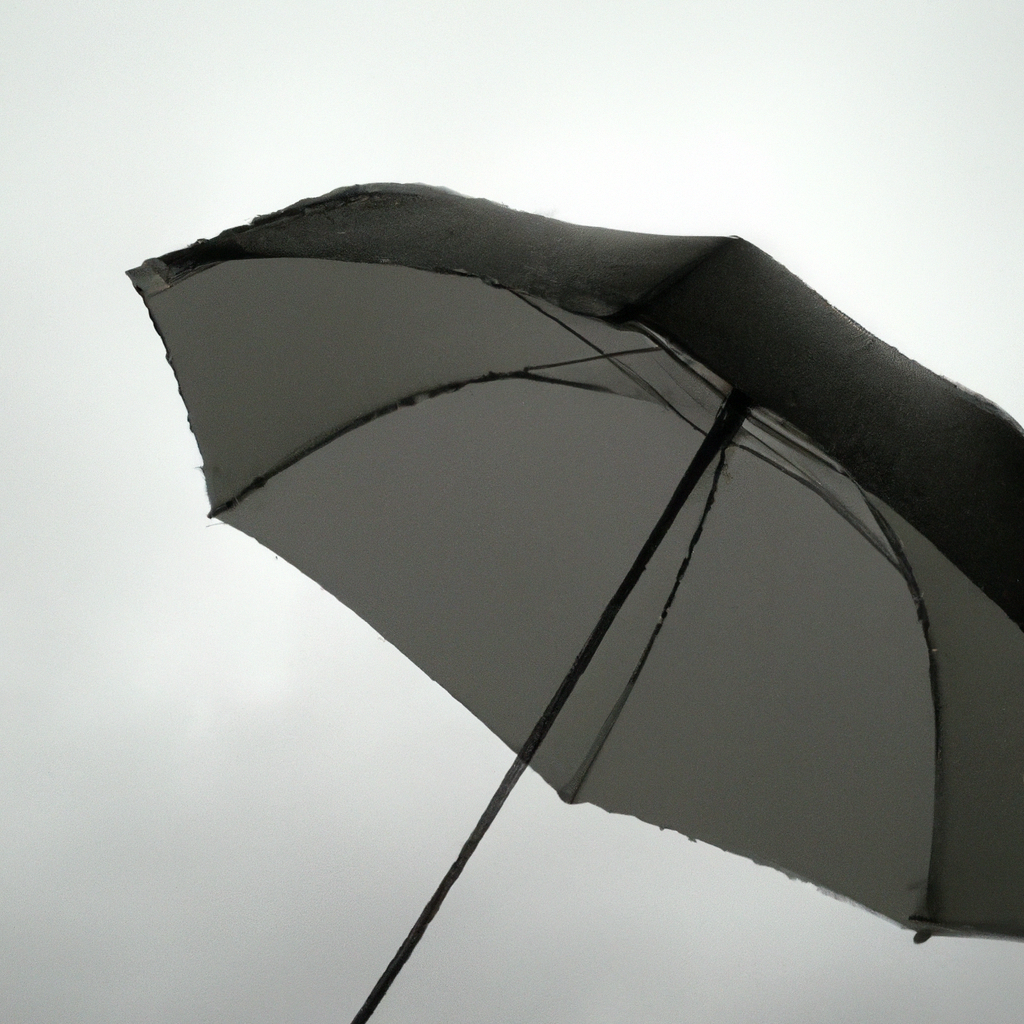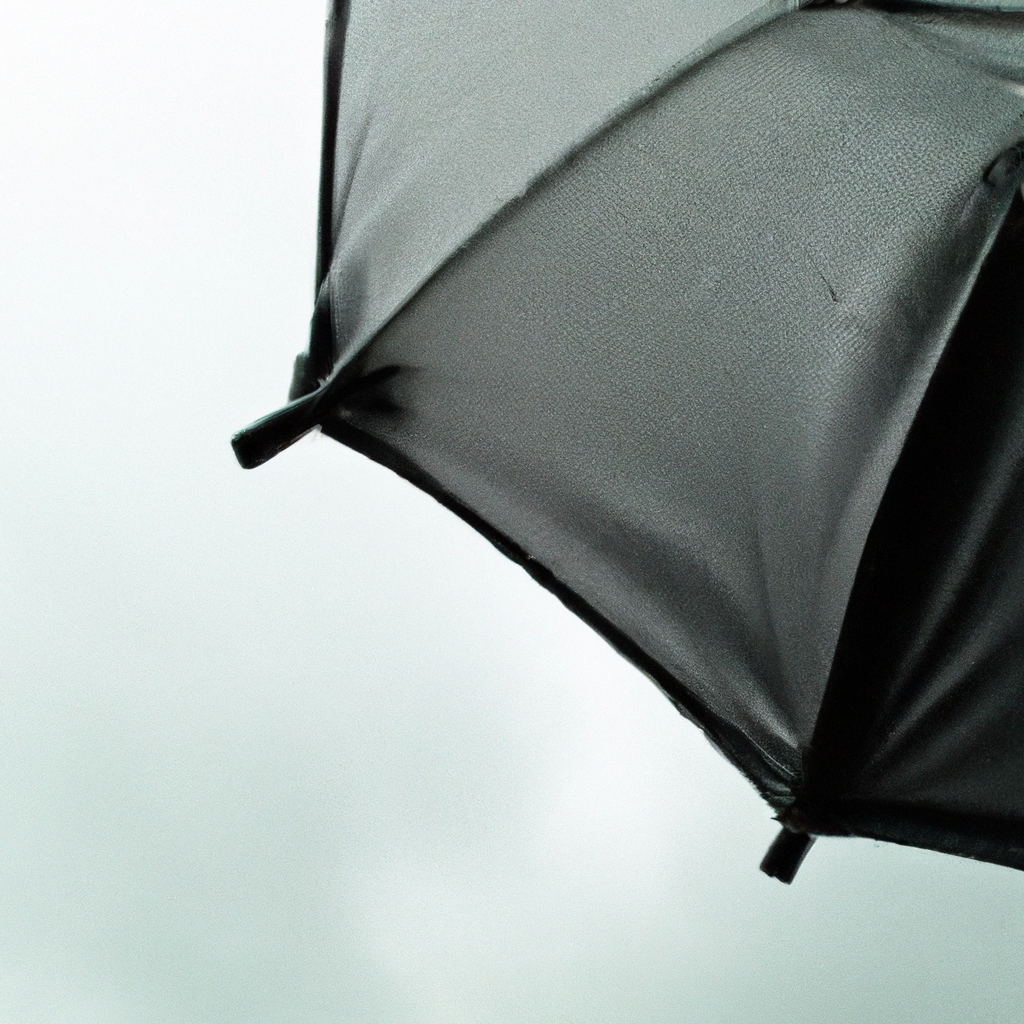Are you tired of battling with the effects of harsh weather on your skin? From scorching sun rays to biting cold winds, our skin often bears the brunt of these extreme weather conditions. But fear not, because there are simple yet powerful ways to shield your skin and keep it healthy and radiant. Whether it’s utilizing the right skincare products, embracing protective clothing, or adapting your daily routine, this article will equip you with the knowledge and tips you need to safeguard your skin against nature’s harshest elements. So say goodbye to dryness, redness, and irritation, and say hello to a happy, glowing complexion all year round.
Understanding the Impact of Harsh Weather Conditions on Skin
As the seasons change and temperatures fluctuate, your skin is constantly exposed to different weather conditions. Whether it’s the cold winds of winter, the dry air of summer, or the heat and humidity of the tropics, harsh weather can take a toll on your skin. Understanding the impact of these conditions is crucial in order to protect and maintain the health of your skin.
Effects of Harsh Weather on Skin
Harsh weather conditions can have various effects on your skin, and it’s important to be aware of these in order to properly care for your skin. Extreme cold temperatures can cause your skin to become dry, rough, and even cracked. The low humidity levels in cold weather can also strip your skin of its natural moisture, leading to further dryness and irritation.
On the other hand, hot and humid weather can cause your skin to produce excess oil, leading to clogged pores, breakouts, and even heat rashes. The combination of heat and humidity can also result in increased sweating, which can further contribute to acne and other skin problems.
Dry weather conditions, whether it’s the dry heat of summer or the arid climate of a desert, can also be detrimental to your skin. The lack of moisture in the air can cause your skin to become dehydrated and parched, leading to flakiness, itching, and a dull complexion.
Common Skin Problems Caused by Harsh Weather
Harsh weather conditions can exacerbate or even cause a variety of skin problems. Some common issues include:
-
Dry, flaky skin: In cold weather, the lack of moisture can cause your skin to become dry and flaky. This can be not only uncomfortable but also unsightly, as it can make your skin appear rough and aged.
-
Chapped lips: Cold winds and dry air can also take a toll on your lips, causing them to become dry, cracked, and painful. This is why it’s important to protect your lips with a moisturizing lip balm when exposed to harsh weather conditions.
-
Acne breakouts: Hot and humid weather can lead to increased oil production, leading to clogged pores and breakouts. The excess sweat can also trap dirt and bacteria, further exacerbating acne.
-
Sensitivity and redness: Cold winds and dry air can leave your skin feeling sensitive and irritated. This can manifest as redness, itching, and even a burning sensation. Similarly, exposure to extreme heat can cause your skin to become flushed and red.
-
Premature aging: Harsh weather conditions, particularly extreme cold and dryness, can accelerate the aging process of your skin. This can result in the appearance of fine lines, wrinkles, and an overall lack of radiance.
Now that we understand the effects of harsh weather conditions on our skin, let’s explore some prevention and protection strategies to help keep our skin healthy and radiant.
Prevention and Protection Strategies
When it comes to protecting your skin from harsh weather conditions, prevention is key. By implementing the right skincare routines and using suitable products, you can shield your skin from the negative effects of the environment. Here are some strategies you can adopt:
Choosing the Right Skincare Products
One of the most important steps in protecting your skin is choosing the right skincare products. Look for products that are designed for your specific skin type and are suited to the weather conditions you are experiencing. For example, in cold and dry weather, opt for moisturizers that are rich in hydrating ingredients like hyaluronic acid and ceramides. These ingredients help to replenish and retain moisture in your skin.
In hot and humid weather, on the other hand, use lightweight moisturizers and serums that are oil-free and non-comedogenic. These products will help keep your skin hydrated without adding excess oil or clogging your pores.
Importance of Sunscreen
Regardless of the weather conditions, sunscreen should be an essential part of your skincare routine. UV rays can penetrate through clouds and reflect off snow, even on overcast or snowy days. It’s important to find a broad-spectrum sunscreen with a high SPF (at least 30) to protect your skin from both UVA and UVB rays.
Apply sunscreen generously to all exposed areas of your skin, including your face, neck, ears, and hands. Reapply every two hours, or more frequently if you are sweating or towel-drying. Sunscreen not only protects against sunburn but also helps to prevent premature aging and reduces the risk of skin cancer.
Protecting Your Lips
The delicate skin on our lips is particularly vulnerable to harsh weather conditions. To protect your lips from becoming dry and chapped, apply a lip balm with SPF throughout the day. Look for ingredients like beeswax, shea butter, and coconut oil, which provide hydration while creating a protective barrier against the elements.
Using Humidifiers
Humidifiers can be a game-changer in combating the dryness of indoor environments. During the winter months, when central heating can dry out the air, using a humidifier can add moisture back into the atmosphere, keeping your skin hydrated. This is especially beneficial for those with dry or sensitive skin.
Wearing Protective Clothing
Another effective way to shield your skin from harsh weather conditions is by wearing protective clothing. In cold weather, dress in layers to trap in heat and protect your skin from the wind. Opt for breathable fabrics that wick away sweat, as trapped moisture can further contribute to skin issues.
In hot and sunny weather, cover up with lightweight, loose-fitting clothing that provides ample coverage. This will help protect your skin from sunburn and reduce the risk of heat-related skin problems.
By adopting these prevention and protection strategies, you can significantly reduce the negative impact of harsh weather conditions on your skin. However, it’s equally important to maintain a regular skincare routine to keep your skin in optimal condition.

Skin Maintenance Techniques
Cleansing and moisturizing are the foundation of any skincare routine. These practices help to keep your skin clean, nourished, and hydrated. Here are some essential techniques to incorporate into your routine:
Cleansing and Moisturizing
Cleanse your skin twice a day to remove dirt, oil, and impurities. Use a gentle cleanser that does not strip your skin of its natural moisture. Avoid using hot water, as it can further dry out your skin. Instead, opt for lukewarm water to cleanse your face.
After cleansing, apply a moisturizer suited to your skin type. Moisturizers hydrate your skin and create a protective barrier against harsh weather conditions. Look for moisturizers that contain humectants like glycerin and hyaluronic acid to attract and retain moisture in your skin.
Exfoliating and Hydrating
Exfoliation helps to remove dead skin cells and promote cell turnover, revealing fresher, more radiant skin. However, it’s important not to overdo it, as excessive exfoliation can damage your skin. Opt for gentle exfoliators and limit exfoliation to once or twice a week, depending on your skin’s needs.
After exfoliating, hydrate your skin with a hydrating serum or mask. These products provide an extra boost of moisture and nourishment, leaving your skin plump and glowing.
Avoiding Hot Showers and Baths
While hot showers and baths may be comforting in cold weather, they can be detrimental to your skin. Hot water can strip your skin of its natural oils and disrupt the moisture balance, leading to dryness and irritation. Stick to lukewarm or cooler water temperatures and limit your shower or bath time to avoid further drying out your skin.
Replenishing Your Skin with Antioxidants
Antioxidants play a vital role in protecting your skin from environmental damage caused by harsh weather conditions. Incorporate skincare products that contain antioxidants such as vitamin C, vitamin E, and green tea extract. These ingredients help to neutralize harmful free radicals, reduce inflammation, and promote overall skin health.
By incorporating these skin maintenance techniques into your daily routine, you can help keep your skin healthy, hydrated, and resilient.
Winter Skincare Routine
Winter weather can be particularly harsh on your skin, with cold winds and low humidity levels causing dryness and irritation. Having a dedicated winter skincare routine is crucial to combat these effects and keep your skin nourished and protected.
Daily Skincare Routine for Winter
In the morning, start by cleansing your face with a gentle cleanser. Follow up with a hydrating toner to rebalance your skin’s pH levels and prep it for the following steps. Apply a serum rich in antioxidants to nourish your skin and protect it from environmental stressors.
Next, layer on a moisturizer suitable for dry or sensitive skin. Look for hydrating ingredients like hyaluronic acid, shea butter, and ceramides. Finish off with a broad-spectrum sunscreen with at least SPF 30 to protect your skin from UV rays, even in winter.
In the evening, repeat the cleansing step and follow it up with a gentle exfoliation to remove any dead skin cells. Apply a hydrating serum and then seal in the moisture with a rich, emollient night cream. This will help repair your skin overnight and lock in hydration.
Nighttime Skincare Routine for Winter
During the winter months, your skin can benefit from additional hydration and nourishment while you sleep. Incorporate a facial oil into your nighttime skincare routine to provide long-lasting hydration and improve your skin’s elasticity. Apply the oil after your moisturizer and gently massage it into your skin, allowing it to penetrate deeply.
Consider using a humidifier in your bedroom to add moisture to the air while you sleep. This can help prevent your skin from becoming dehydrated overnight.
Remember, consistency is key when it comes to skincare routines. Stick to your winter skincare routine diligently to ensure your skin is adequately protected and nourished throughout the cold months.

Specific Tips for Cold and Dry Weather
Cold and dry weather can be particularly harsh on your skin, causing dryness, redness, and irritation. Here are some specific tips to help protect your skin during these conditions:
Shielding Your Skin from Cold Weather
In addition to wearing protective clothing, create a barrier between your skin and the cold weather by applying a thick moisturizer. Look for emollient-rich creams or ointments that provide intense hydration and create a protective layer.
When heading outdoors, cover your face with a scarf or a face mask to shield it from the cold winds. This will help prevent your skin from becoming dry and chapped.
Protecting Your Skin in Dry Weather
To combat dryness caused by low humidity levels, incorporate a hydrating facial mist into your routine. Spritzing your face throughout the day can help replenish moisture and provide instant relief.
You can also opt for a hydrating sheet mask once or twice a week to give your skin an extra hydration boost. These masks are saturated with nourishing essences that penetrate deeply into your skin, leaving it plump and radiant.
Skincare for Hot and Humid Weather
Hot and humid weather can lead to excessive sweating, clogged pores, and oily skin. Here are some skincare tips to combat these issues and keep your skin looking fresh and balanced:
Combatting Heat and Humidity-Related Skin Issues
Cleanse your face twice a day with a gentle cleanser to remove excess oil, sweat, and dirt. Look for cleansers that contain ingredients like salicylic acid or tea tree oil, which help to control oil production and minimize breakouts.
Incorporate a toner into your routine to balance your skin’s pH levels and tighten your pores. This will help reduce the appearance of oiliness and keep your skin looking matte.
Finally, use lightweight, oil-free moisturizers and serums that are specifically formulated for oily or combination skin. These products will provide hydration without adding excess oil or clogging your pores.
Choosing Lightweight and Oil-Free Products
When it comes to skincare products, opt for lightweight formulas that can be easily absorbed into your skin without leaving a greasy residue. Look for oil-free moisturizers, serums, and sunscreens that are non-comedogenic and won’t clog your pores.
Using gel-based or water-based products can also help keep your skin feeling fresh and light, especially in hot and humid weather.
By following these skincare tips, you can help combat the effects of hot and humid weather on your skin and maintain a clear, balanced complexion.

Dealing with Windy Weather
Windy weather can be harsh on your skin, leading to windburn, dryness, and irritation. Here’s how you can protect your skin when the winds are blowing:
Protecting Your Skin Against Windburn
When heading outdoors in windy weather, make sure to apply a generous amount of moisturizer to create a protective barrier against the wind. Look for moisturizers that contain ingredients like ceramides, shea butter, or petrolatum, as these provide effective protection and hydration.
Consider using a hydrating facial oil as the final step in your skincare routine to provide an extra layer of protection. The oil will help seal in moisture and prevent it from evaporating.
Using Scarves and Hats for Additional Protection
To shield your face from the wind, cover it with a soft scarf or a hat with a wide brim. This will help protect your skin from the drying effects of the wind and reduce the risk of windburn.
Make sure to choose fabrics that are soft and gentle on the skin, as rough materials can further irritate your skin in windy conditions.
Avoiding Sun Damage
Sun damage is a year-round concern, and it’s important to protect your skin from the harmful effects of UV radiation. Here’s how you can minimize the risk of sun damage:
Understanding the Dangers of UV Radiation
UV radiation can cause sunburn, premature aging, and an increased risk of skin cancer. It’s important to protect your skin from both UVA and UVB rays, as they can penetrate the skin and cause long-term damage.
UVA rays are responsible for premature aging, while UVB rays are responsible for sunburn. Look for a broad-spectrum sunscreen that protects against both types of rays.
Applying Sunscreen Correctly
To ensure optimal sun protection, apply sunscreen generously to all exposed areas of your skin, including your face, neck, ears, and hands. The general rule of thumb is to use at least a teaspoon of sunscreen for your face and a shot glass worth for your body.
Apply sunscreen at least 15-30 minutes before sun exposure to allow it to fully absorb into your skin. Reapply every two hours, or more frequently if you are sweating or towel-drying.
Seeking Shade and Wearing Sun-Protective Clothing
Minimize your sun exposure during the peak hours of 10 am to 4 pm when the sun’s rays are the strongest. Seek shade whenever possible, especially if you’re outdoors for an extended period.
Additionally, protect your skin by wearing sun-protective clothing, such as long-sleeved shirts, pants, and wide-brimmed hats. Look for clothing labeled with UPF (Ultraviolet Protection Factor) to ensure that it provides effective sun protection.
By taking these precautions, you can minimize the risk of sun damage and maintain healthy, radiant skin.

Minimizing the Effects of Pollution
Pollution can have detrimental effects on your skin, including dullness, premature aging, and an increased risk of skin problems. Here’s how you can minimize the effects of pollution:
Effects of Pollution on Skin Health
Pollution, including airborne particles and environmental toxins, can penetrate your skin and cause oxidative stress. This can lead to inflammation, collagen breakdown, and an overall compromised skin barrier.
The effects of pollution can vary depending on the severity of the pollution in your environment, but it’s important to take steps to protect your skin regardless.
Creating a Barrier Against Pollutants
To minimize the effects of pollution, create a barrier between your skin and environmental pollutants. Start with a clean canvas by gently cleansing your face twice a day to remove any dirt, oil, or makeup that may have accumulated.
After cleansing, apply a potent antioxidant serum or cream. Antioxidants help neutralize harmful free radicals generated by pollution, reducing inflammation and protecting your skin from damage.
Additionally, consider using a physical barrier such as a silicone-based primer or a pollution-fighting moisturizer. These products form a protective layer on your skin, shielding it from pollution particles.
Finally, don’t forget to maintain a healthy lifestyle that includes a nutritious diet, regular exercise, and adequate sleep. A balanced lifestyle can help fortify your skin’s natural defense mechanisms and minimize the impact of pollution.
Seeking Professional Help
While proper skincare routines and preventive measures can go a long way in protecting your skin from harsh weather conditions, there may be instances where seeking professional help is necessary. Here are two options worth considering:
Consulting a Dermatologist
If you have persistent or severe skin issues that cannot be resolved with over-the-counter products, consider consulting a dermatologist. Dermatologists are medical professionals specializing in diagnosing and treating skin conditions. They can provide personalized recommendations and prescribe medications or treatments tailored to your specific needs.
Considering Professional Treatments
In some cases, professional treatments may be required to address specific skin concerns caused by harsh weather. These treatments may include chemical peels, microdermabrasion, laser therapy, or even prescription-strength skincare products.
Professional treatments can help address more severe cases of dryness, hyperpigmentation, premature aging, or persistent acne. Consult with a dermatologist or aesthetician to determine the most appropriate treatment options for your skin.
Remember, everyone’s skin is unique, and what works for one person may not work for another. It’s important to listen to your skin’s needs, monitor its response to different products and weather conditions, and adjust your skincare routine accordingly.
By understanding the impact of harsh weather conditions on your skin and implementing preventive measures, you can maintain healthy, radiant skin all year round. So, take care of your skin, adapt your skincare routine to the weather, and enjoy the beautiful, glowing results!






